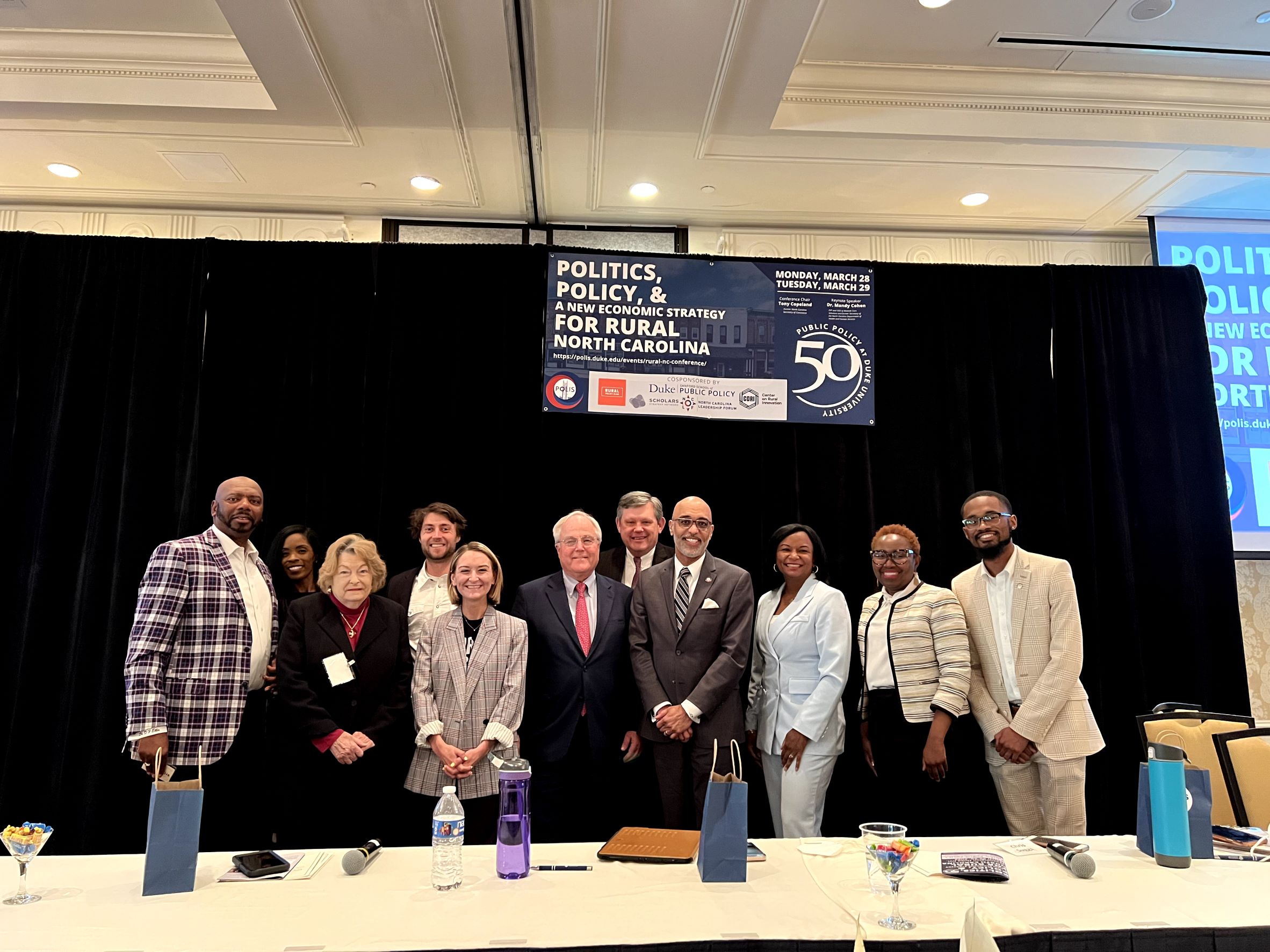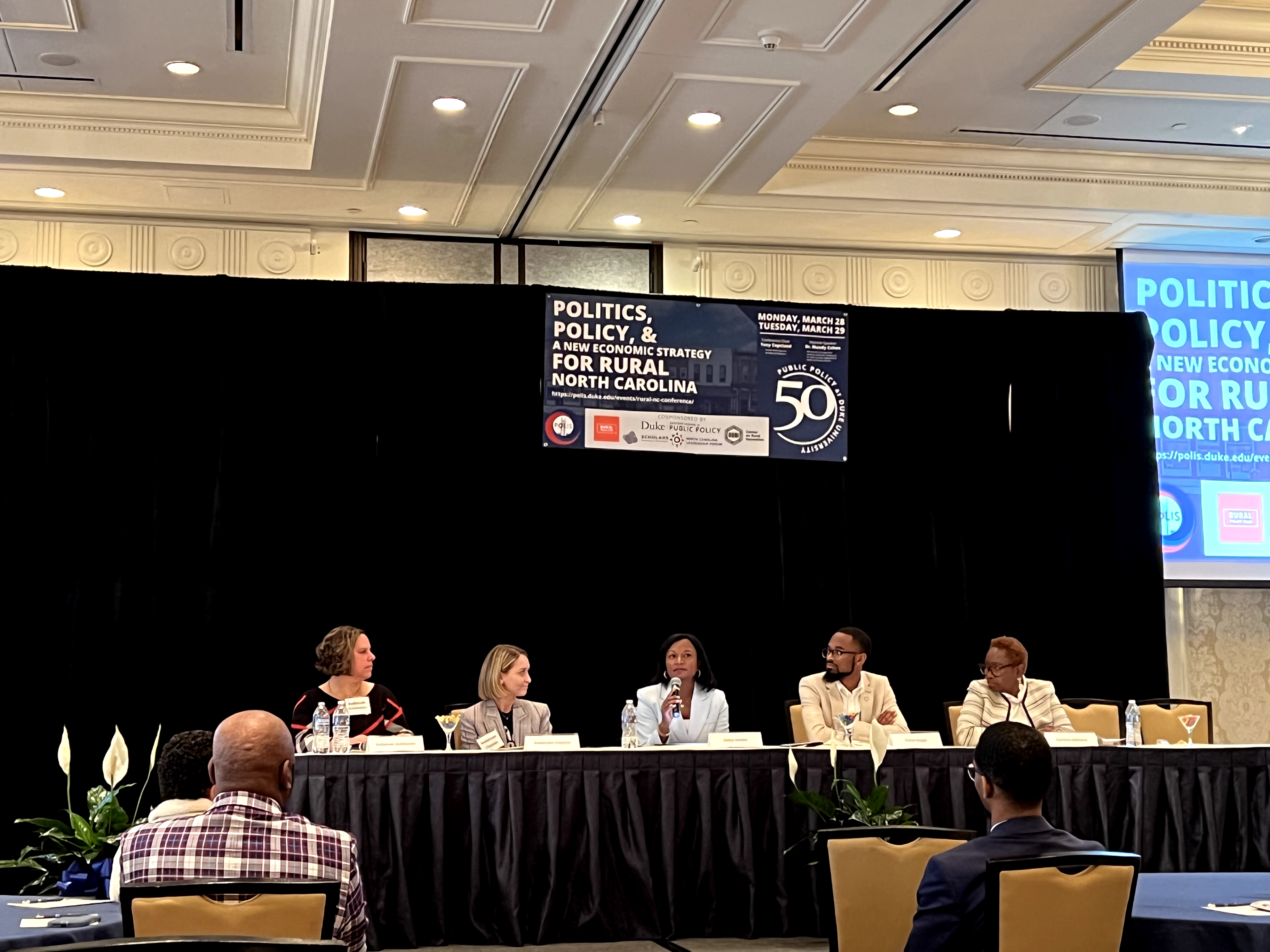
Rural Conference Recap:
Political Organization
Hana Stepnick (PPS ’23)
Apr 11, 2022
In this session, we heard from political organizers in rural areas from across the state. Each organizer presented their own background and initiatives, then they came together to answer questions about the major priorities and contemporary challenges facing North Carolina rural communities.
We started off by hearing from the young and inspiring Anderson Clayton, who got started at App State organizing for student voting rights. She then transitioned to work in rural Iowa as a field organizer for Kamala Harris and Elizabeth Warren, where she felt right at home. During the 2020 election, she pivoted to working for the Amy McGrath campaign in rural Kentucky – an overlooked and important region in a well-financed race. She states that this area saw very little of the millions and millions of dollars that went into the campaign. Now, Clayton works as a broadband analyst at CORI. Through her previous and current political engagement, she’s learned the power of relational organizing, the importance of electing Black politicians to represent Black communities, and the strength of a rural platform that makes an actual difference – not just disconnected talking points. She firmly believes that “political organizing is done best when you know these folks” – and her work shows that.
We then got to learn from Aimy Steele, who is the founder and executive director of the New North Carolina Project, which organizes Black and Brown citizens to vote by learning about their priorities. The organization’s goals are to engage communities of color, build a voter base, and create a body of leadership in NC that is more representative. They use innovative technology, like heat maps, to look at where people vote and don’t vote, then engage in all sorts of mechanisms (phone-banking, text-banking, door-knocking) to learn about and communicate with these North Carolinians.
We also heard from Chris Suggs, the youngest person serving in elected office in NC. He believes in “a youth-led approach to civic engagement.” He started off his presentation by telling us the civil rights history of Adkin High School in Kinston, where he serves on city council, explaining the legacy of protests against racial injustice in his hometown. Alongside his work on city council, Suggs leads a program to empower young people through service, leadership, and civic engagement. He believes in putting youth in decision-making positions, centering the most marginalized, making sure political messaging is local, and understanding ownership (often of property) as a means of power and influence. Suggs firmly believes that narratives have to make sense for the issues that affect rural communities. For example, don’t talk about canceling student loans in an area where only ten percent of the population goes to college.
Lastly, we engaged with Cynthia Wallace, the co-founder and executive director of the New Rural Project. Cynthia has a storied political history in North Carolina. She was the Democratic Party Chair for the Ninth District and ran for Congress in 2020. But now she’s focused on seven rural counties – Union, Anson, Richmond, Scotland, Moore, Hoke, and Robeson – and how to engage their young and marginalized residents. The New Rural Project has a three-pronged strategy: listening, electoral engagement, and civic engagement. They’re committed to decreasing the barriers to voting for people of color, especially after 2020 – which didn’t have the same turnout in rural communities as the national narrative would make it seem.



